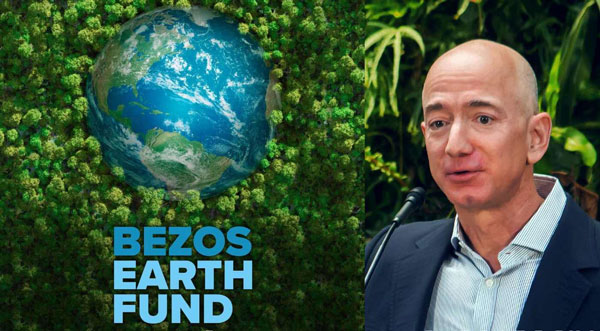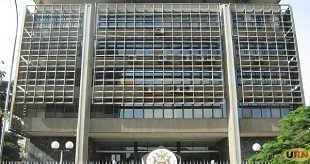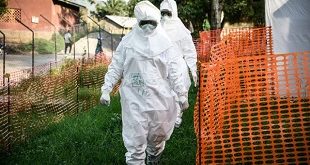
Funding will enable locally led restoration of 600,000 hectares critical for climate and livelihoods
Nairobi, Kenya | PRNewswire | The Bezos Earth Fund has announces $22.8 million to accelerate the restoration of two African landscapes critical for carbon sequestration, biodiversity and human wellbeing: the Greater Rift Valley in Kenya and the Lake Kivu and Rusizi River Basin in the Democratic Republic of Congo, Rwanda and Burundi.
Bezos Earth Fund President and CEO Andrew Steer announced this funding at the Africa Climate Summit in Nairobi, Kenya September 5.
His announcement followed remarks by Rachel Ruto, First Lady of Kenya, and Dr. Dorcas Rigathi, Second Lady of Kenya, emphasizing restoration’s vital role in empowering the most vulnerable people to transform their landscapes and livelihoods.
First Lady Ruto announced a bold vision to mobilize African First Ladies as champions of grassroots, women-led restoration across the continent.
The funding is part of the Earth Fund’s $1 billion commitment to landscape restoration globally. It also adds to the $42.2 million granted previously to accelerate Africa’s restoration movement, known as AFR100, and complements recent funding from The Audacious Project and Norway’s International Climate and Forest Initiative (NICFI).
“Africa is home to the world’s largest restoration opportunity and is a critical player in the global fight against climate change, nature loss, and poverty,” said Dr. Steer. “Thirty-four African countries have put forward an ambitious vision to restore 100 million hectares of degraded land by 2030. With these grants we are proud to support the next generation of African institutions that are at the heart of the continent’s restoration movement and begin the vital work of leveraging philanthropy into private investment in restoration.”
The grants, which are still in process, will enable the restoration of 600,000 hectares of degraded land in the Greater Rift Valley, home to Kenya’s water towers and a breadbasket for the region, and the Lake Kivu and Rusizi River Basin, part of the second-largest rainforest in the world and home to five million people. Restoration at this scale can sequester 42 million metric tons of carbon dioxide equivalent by 2050, the equivalent of taking more than 9.3 million gasoline-powered vehicles off the road per year. The grants will:
- Provide technical assistance to community groups and restoration enterprises in both landscapes. This support will focus on remote sensing, restoration techniques, nursery management, marketing, and financial management.
- Provide multi-year organizational development support to grassroots African restoration organizations.
- Strengthen value chains for products and services produced through restoration and attract development finance, public funds, and private investment into restoration projects and businesses.
- Deliver research and development to improve native tree seed supply and quality, currently a bottleneck to meeting annual tree planting targets in the landscapes.
- Monitor land cover changes and restoration impacts using data from Land & Carbon Lab.
“Locally led and managed restoration efforts are more likely to deliver long term success and can bring climate and biodiversity benefits along with economic prosperity for communities. The bottom line is without local leadership, local wisdom, and passion, scaling restoration across Africa would be impossible,” said Wanjira Mathai, the Earth Fund’s advisor for Africa and Managing Director at the World Resources Institute. “Already, Africa is home to some of our planet’s greatest restoration successes, and this funding will support locally led restoration to re-green our beautiful African continent.”
“Africa is at the forefront of the restoration economy. Thousands of entrepreneurs across the continent are demonstrating that landscape restoration is not just good for the environment, but creates jobs and generates economic returns,” said Mamadou Diakhité, Head of the Climate Change and Environmental Sustainability Division at the African Union Development Agency (AUDA-NEPAD) and lead of the AFR100 Secretariat. “These kinds of green jobs are essential for Africa’s youth. Africa is a young continent and an entrepreneurial one. We are ready for investment.”
Grants in process announced include:
- The Albertine Rift Conservation Society (ARCOS), a regional restoration champion and award winner (2012 MacArthur Award recipient) headquartered in Rwanda, to restore land and empower local actors in integrated landscape restoration and impact monitoring.
- Barka Fund, an African impact fund and technical assistance provider, to deliver pre and post-investment training and secure private investment in restoration enterprises.
- World Agroforestry, part of CIFOR-ICRAF, a world-class research and development organization with expertise in tree genetic resources, to improve access to and supply high-quality, diverse, climate-resilient seeds and seedlings.
- The Green Belt Movement, a Kenyan restoration group founded by Nobel Laureate Wangari Maathai, to train Tree Nursery Women’s Groups on restoration techniques, environmental governance, and livelihood development.
- Maliasili, which works to accelerate the growth and impact of community-based conservation in Africa by supporting and strengthening local civil society organizations, to provide multi-year organizational development support to leading African restoration groups.
- Rabo Foundation, an impact fund that promotes sustainable development by providing financial support and capacity building, to advance agroforestry projects together with the Cereal Growers Association to train “lead farmers” in the Greater Rift Valley in agroforestry techniques and carbon markets readiness.
- Regeneration, a partnership of value chain experts Palladium and Systemiq, to deliver investment readiness training to restoration enterprises and facilitate offtake agreements for their products.
- World Resources Institute Africa, a nonprofit that provides regional expertise in forest and landscape restoration, to deliver training to restoration groups, unlock concessional finance for restoration, and monitor funded projects using the Land & Carbon Lab.
 The Independent Uganda: You get the Truth we Pay the Price
The Independent Uganda: You get the Truth we Pay the Price



Good morning
I hope my email find you in good condition I am a tree farmer planting trees in northern Uganda iam requesting for PPP investment in tree planting carbon credits and apiculture project in reaffrostation I have more than 3865 hector for restoration under national forests reserve so far we have planted 30 hector
I would be grateful for confirming PPP investment
In tres planting
I would be